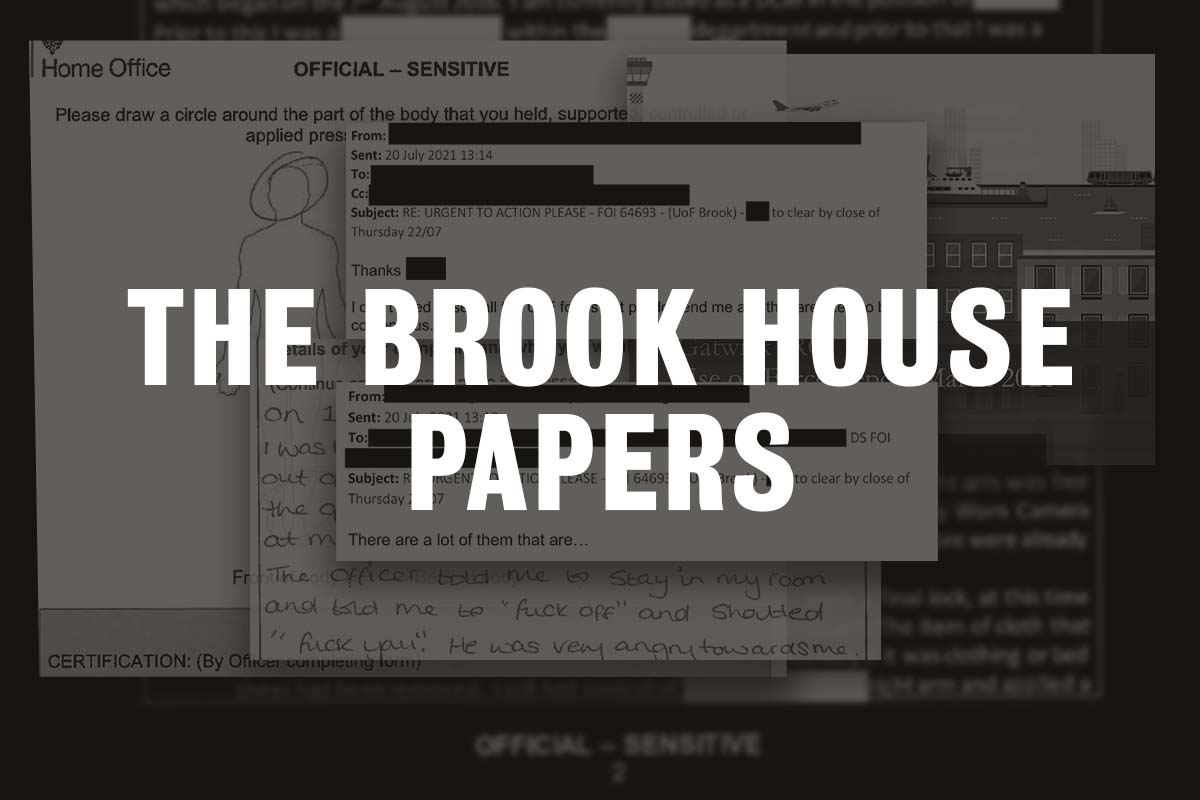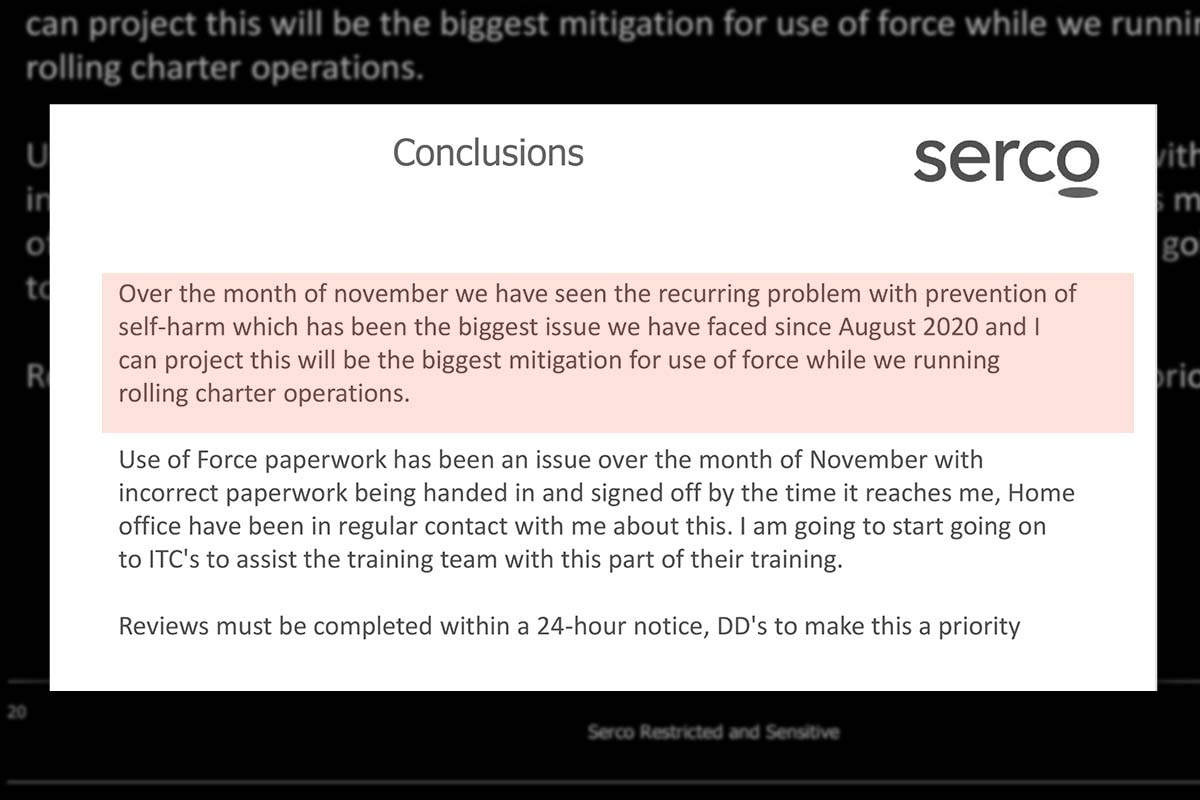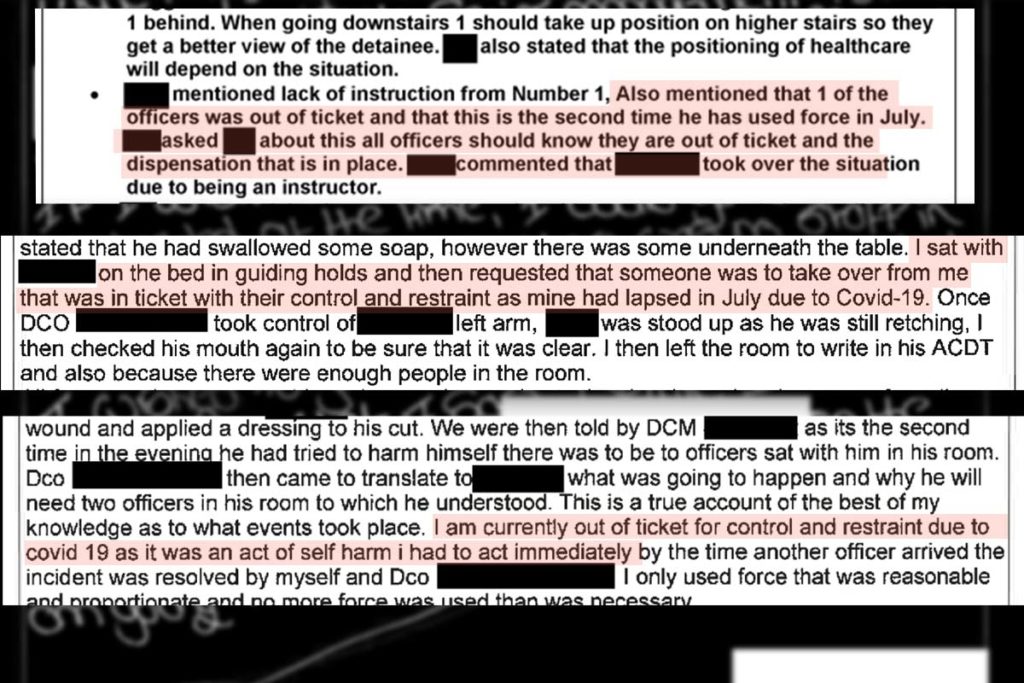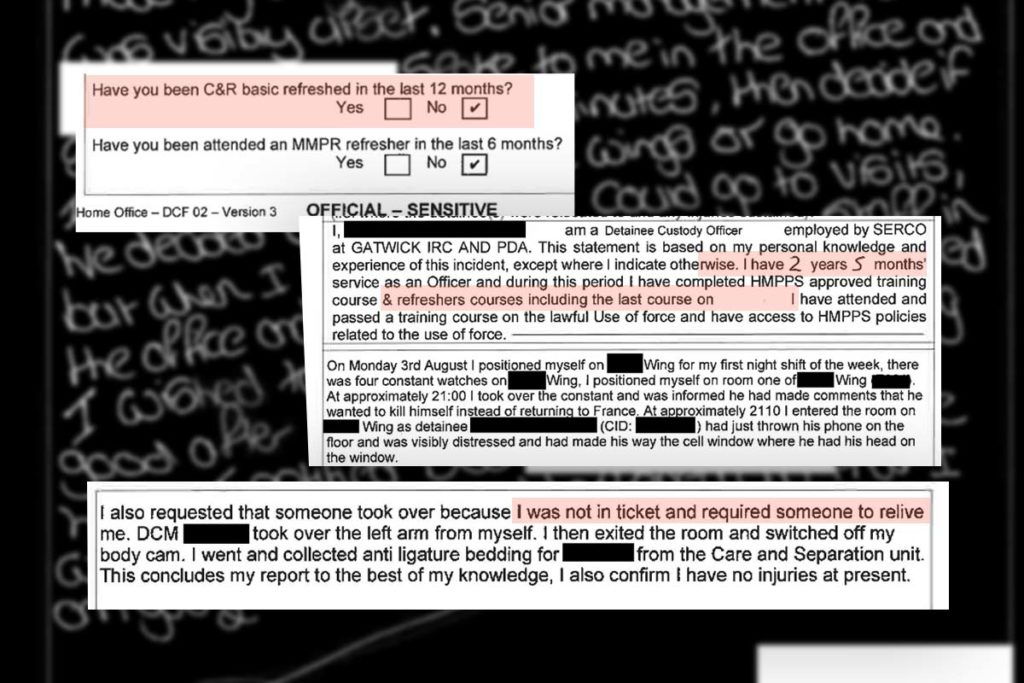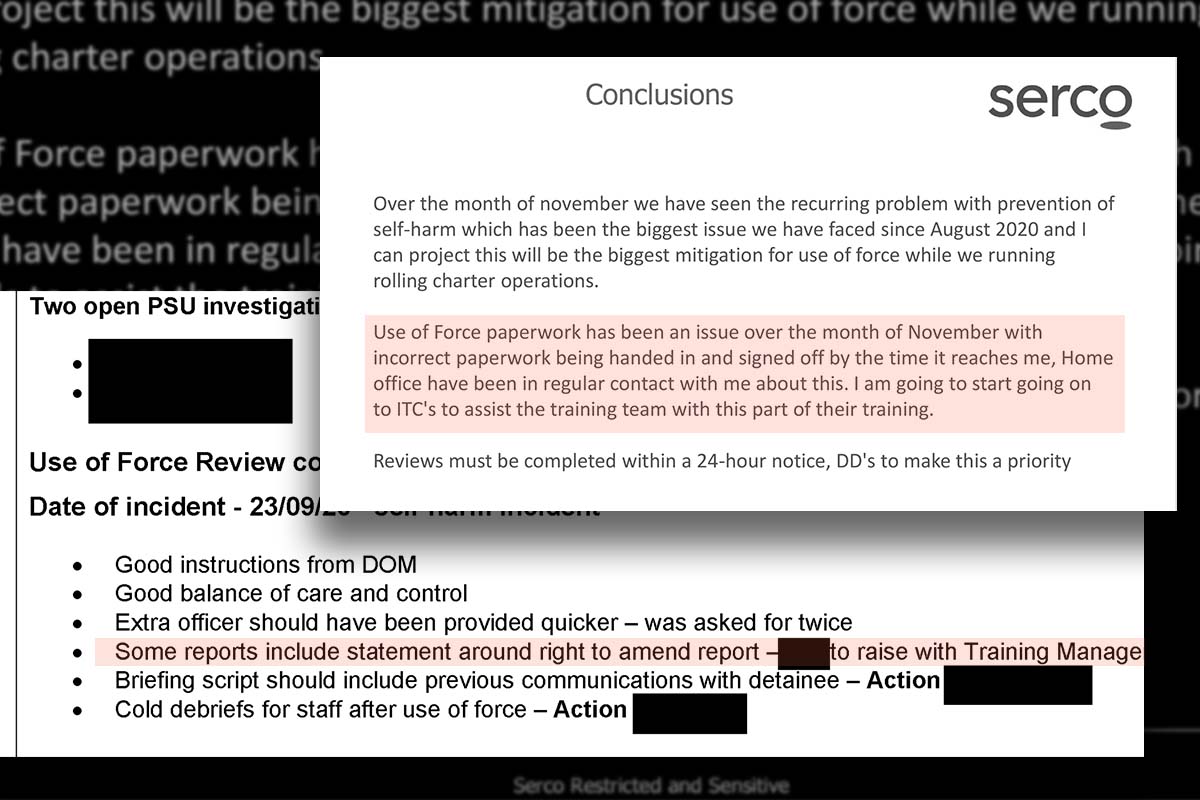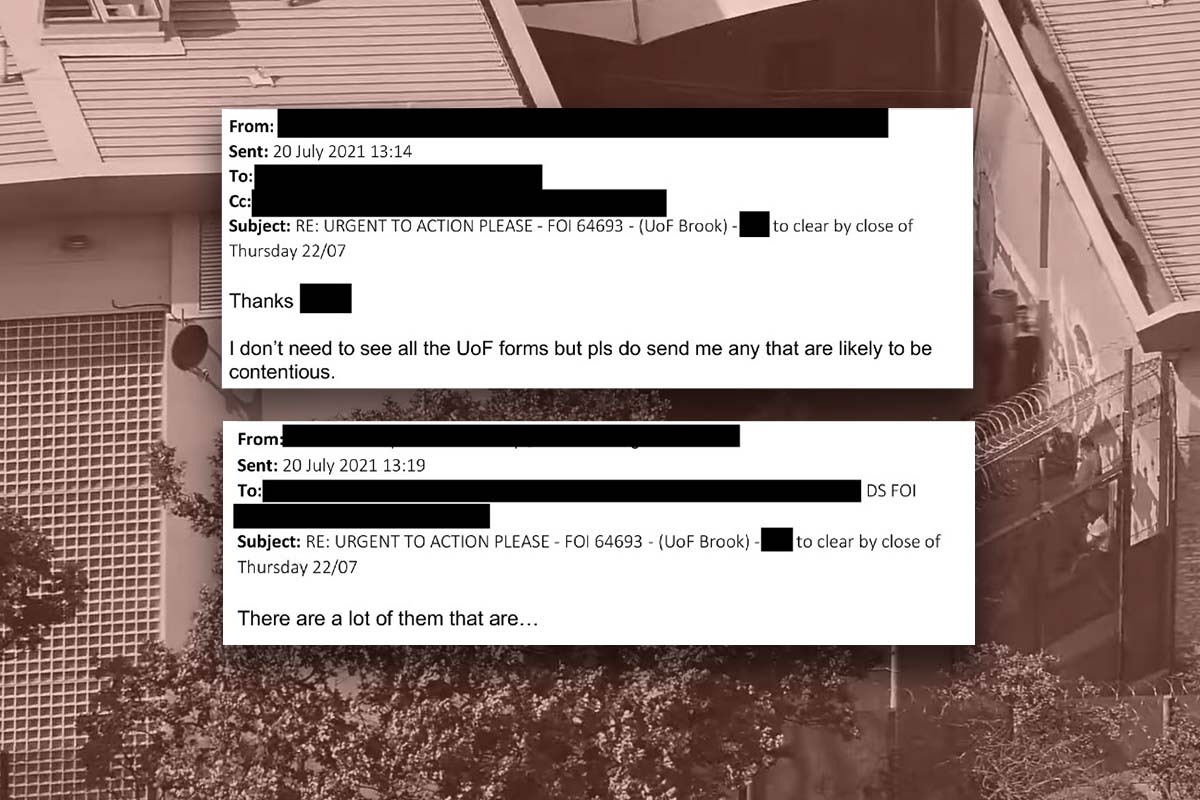Revealed: Guards used force on suicidal asylum seekers after training had expired
Published on 26 December 2021
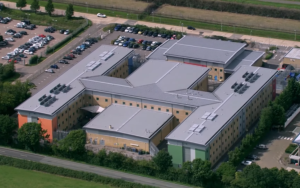
The papers reveal the desperation of those detained at Brook House last year amid an intensive programme of charter flights
Reports Aaron Walawalkar and Jessica Purkiss, Liberty Investigates journalists; Eleanor Rose, Liberty Investigates editor; and Mark Townsend, Home Affairs editor of the Observer


